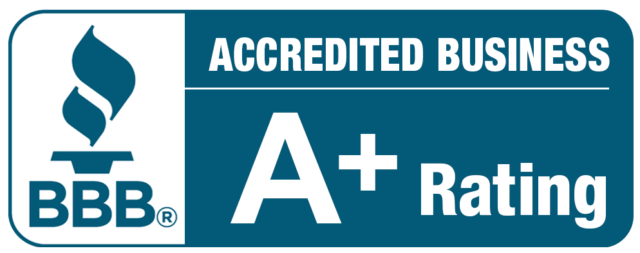What is active listening in client care?
Active listening is a communication technique that involves fully focusing on and understanding a client’s words, tone of voice, and body language. It is a process of intentionally engaging the client, asking questions, and paraphrasing to ensure that you understand the message being conveyed.
Active listening requires the caregiver to give their full attention to the client while he/she is communicating without distractions. Distractions can come from gadgets such as mobile phones or other devices. Additionally, active listening also requires acknowledging the clients’ emotions and feelings, showing empathy, and responding appropriately.
This communication technique is essential especially for client care services, as it helps to build trust, enhance relationships, and improve outcomes.
Is Active Listening Important In Client Care Services?
As we have earlier stated, active listening is essential in the client care service business. This is so because you can come in contact with difficult clients. With active listening, you can How to Handle Difficult Clients with Care and Professionalism. Here is why active listening is important:
1. It’s Important To Establish Trust
Active listening is a crucial step in establishing trust with clients. When clients feel heard and understood, they are more likely to trust the business and the professionals providing care.
By actively listening to clients, businesses demonstrate their commitment to meeting their needs and delivering quality care. This trust is essential in building long-term relationships with clients and ensuring their loyalty to the business.
2. Improving Communication
Active listening also improves communication between clients and professionals. When clients feel that they are being heard, they are more likely to share their concerns, feelings, and expectations openly.
This open communication allows professionals to gain a deeper understanding of the client’s needs, preferences, and goals. With this information, professionals can tailor their care and services to better meet the client’s needs.
3. Active Listening Helps Build Rapport
In addition to establishing trust and improving communication, one of the importance of active listening in client care is that it also helps to build rapport with clients. When professionals actively listen to clients, they show that they care and are invested in the client’s well-being.
This can help to create a positive and supportive relationship between the client and the professional. A strong rapport can lead to increased client satisfaction, repeat business, and referrals.
4. Enhances the Client Experience
One factor that differentiates a client care service from another can be active listening. Active listening ultimately leads to a better client experience. When professionals actively listen to clients, they can provide more personalized care and services.
This leads to greater client satisfaction, which can improve business outcomes. Additionally, active listening can help to identify potential issues before they escalate, allowing professionals to address them proactively.
How Do I Develop Active Listening In Client Care Services?
Now that you understand the importance of active listening in client care, how do you develop it? Is active listening learned? Active listening is a skill that can be developed with proper focus and practice.
Also, keep in mind that active listening is not a skill you learn one-off. Developing active listening skills in client care service is an ongoing process that requires consistent effort and practice. Here are some strategies that professionals can use to improve their active listening skills and provide better client care:
1. Focus on the Client
It is essential to give the client your undivided attention when they are speaking. Avoid distractions like phones or other devices and maintain eye contact. Also, try to eliminate any internal distractions like thinking about what to say next. By focusing on the client, you get the necessary information and take note of the essential facts the client is conveying.
2. Paraphrase and Reflect
This step is crucial to know that you and the client are on the same page. After the client has shared their thoughts or feelings, paraphrase what they said to ensure that you understood it correctly. Reflecting on what the client has said shows that you are listening and provides an opportunity to clarify any misunderstandings.
3 Ask Open-Ended Questions
Open-ended questions encourage clients to share more details about their thoughts and feelings. This type of questioning can help professionals to gain a better understanding of the client’s needs and concerns. Try to ask questions that will aid you to get feedback on more details about the topic of discussion.
4. Avoid Interrupting
Interrupting can be a barrier to effective communication and can make the client feel like they are not being heard. Allow the client to finish their thoughts before responding.
5. Show Empathy
Demonstrating empathy shows the client that you understand their feelings and concerns. Use statements like “I understand” or “That must be difficult” to convey empathy. The demonstration of empathy should show on your face as well. Do not say you understand when your face is communicating “confusion.”
6. Practice Active Listening
The ultimate way to develop active listening skills is to practice active listening. Active listening is a skill that can be improved with practice. Professionals can practice active listening with friends, family, or colleagues to develop their skills.
FAQS
Why is active listening important with clients?
What is the five importance of active listening in client care?
Active listening is a communication skill that builds trust between you and your colleagues, and that empowers you to make informed decisions, resolve issues, and drive a team or organization toward success, based on awareness and absorption of all the information necessary to achieve this
In summary, developing active listening skills is critical in client care service. By focusing on the client, paraphrasing and reflecting, asking open-ended questions, avoiding interrupting, showing empathy, and practicing active listening, professionals can provide exceptional care to their clients.
Active listening is also a crucial skill in client care. It helps to establish trust, improve communication, build rapport, and enhance the overall client experience. By incorporating active listening into their client care strategies, businesses can differentiate themselves from their competitors and provide exceptional care to their clients.
If you are in Indiana and looking for how to access quality care services, visit Good hands home care agency, where care is offered with professionalism and efficiency.






2 comments
Pingback: The Impact Of Staff Etiquette On Client Satisfaction And Loyalty
Pingback: Importance Of Client Feedback In Improving Care | 12 Tips
Comments are closed.